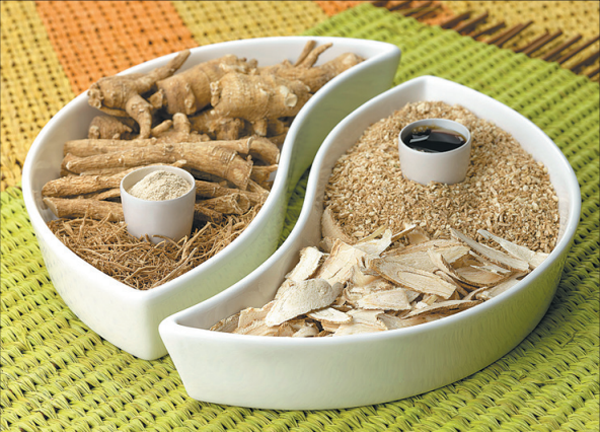Ginseng farmers in Wisconsin fret over tariff threat


Wisconsin's ginseng growers are apprehensive about their product showing up on a list of targets should China retaliate against US tariffs.
US President Donald Trump, after imposing tariffs on imported steel (25 percent) and aluminum (10 percent) on March 8, signed a memorandum last Thursday that would impose tariffs on up to $60 billion of imported Chinese goods.
In response, China's Ministry of Commerce on Friday released a list of 128 US goods that it would impose duties on, barring an agreement between the two countries. That would potentially include a 15 percent duty on ginseng.
"I don't see the benefit in tariffs. We are just a little industry here that would get roped into the whole thing," said Jim Schumacher, 47, a ginseng farmer. "Any time you add a 15 percent duty or tariff, that is definitely concerning - even if you have the highest-quality ginseng. You aren't price-competitive then."
The Schumacher family's 60-year-old company - Schumacher Ginseng LLC - is in Marathon County, Wisconsin, where the majority of the state's ginseng is grown.
The company produces American ginseng - known by the scientific name Panax quinquefolius - and distributes it as roots, tea, capsules and other products at home and abroad.
China is the most important market for Wisconsin ginseng - in 2017, more than 85 percent of the state's yield was exported to China or brought into China as gifts, according to the Ginseng Board of Wisconsin, a nonprofit organization representing all Wisconsin ginseng growers.
The exports to China are worth $30 million a year to Wisconsin's growers. There are approximately 180 ginseng farmers in Wisconsin, and the state's American ginseng is considered the highest quality in the world, according to the board.
The ginseng board also is concerned that China might find other markets.
"This (15 percent) duty could be detrimental to our industry, as many Chinese distributors have expressed concern that they may have to shift purchases to Canadian ginseng," the board said in a statement.
Canada is the largest producer of American ginseng in the world. The majority of production is in Ontario and in British Columbia.
Board President Robert Kaldunski, 56, who said he has grown ginseng for 36 years, was in China last week meeting with new potential distributors when news broke of China's retaliatory measures.
He said a consultant for the group told him Chinese consumers were talking about cutting back on or not purchasing Wisconsin ginseng because they felt their country was being punished by US tariffs.
"We would lose well beyond 15 percent (in revenue) because the marketplace would be quieter. We don't have margins that can absorb that kind of loss."
He said the board is pushing US representatives from the state -including House Speaker Paul Ryan and Senator Ron Johnson, as well as state representatives, to negotiate.
Joe Heyl, 47, who owns Heyl Ginseng, said he exports the majority of his ginseng - 100,000 pounds - to the Chinese mainland annually, shipments worth about $4 million, in addition to selling 25,000 to 50,000 pounds domestically. He also exports to Taiwan, Singapore and Japan.
Heyl said he agrees with Trump's goal to reduce the US trade deficit with China, saying that the Chinese charge a 30 percent tax on ginseng imports, while the US allows Chinese ginseng into the US free.
Heyl said he agrees with fair trade "on a controlled level. I think we should negotiate and say to the Chinese, 'You're charging us 30 percent for our product coming in, we're charging you nothing. Do you really think it's fair to put more tax on us?'"
Schumacher believes China will not levy the tariffs, and that the two sides will negotiate a deal.
"You can look at what happened in Europe. The US negotiated with them (on steel and aluminum), and the US Treasury Secretary (Steven Mnuchin) is in negotiations with China already," he said.
On Sunday, Mnuchin said on Fox News he was hopeful that the US and China could avert a trade war.
In a statement Monday, the ginseng board said it was "hopeful that the US and Chinese governments can come to an agreement that will eliminate the proposed duty or lessen the impact on the Wisconsin ginseng industry".
Schumacher said his company sells about 70 percent of its ginseng domestically. About 95 percent of the company's customers are Chinese-Americans, who commonly bring ginseng as gifts to the Chinese mainland. The company also ships to China as well as Taiwan, Hong Kong and Canada.
The US produces 900,000 to 1 million pounds per year, according to Kaldunski. Canada's output is four or five times that amount, and China produces well above 5 million pounds, he said.
































